Smoking and Access to Government Funded Cancer Treatment Analysis
VerifiedAdded on 2023/06/05
|5
|884
|123
Essay
AI Summary
This essay delves into the critical issue of smoking and its impact on cancer rates, particularly within the context of government-funded healthcare in Australia. It highlights the alarming rise in smoking-related deaths, with lung cancer identified as a leading cause. The essay explores the financial burden on patients, including out-of-pocket expenses for diagnosis, treatment, and survival, even within the public system. It underscores the Australian government's role in ensuring access to affordable cancer treatments and the challenges associated with Medicare coverage. The importance of nurses in providing quality care and effective counseling to patients is emphasized, suggesting that nurses, who interact with patients directly, are best positioned to advise the government on improving healthcare delivery. The essay concludes by stressing the need for comprehensive strategies to address smoking, enhance treatment access, and alleviate the strain on government resources allocated to cancer care.
1 out of 5
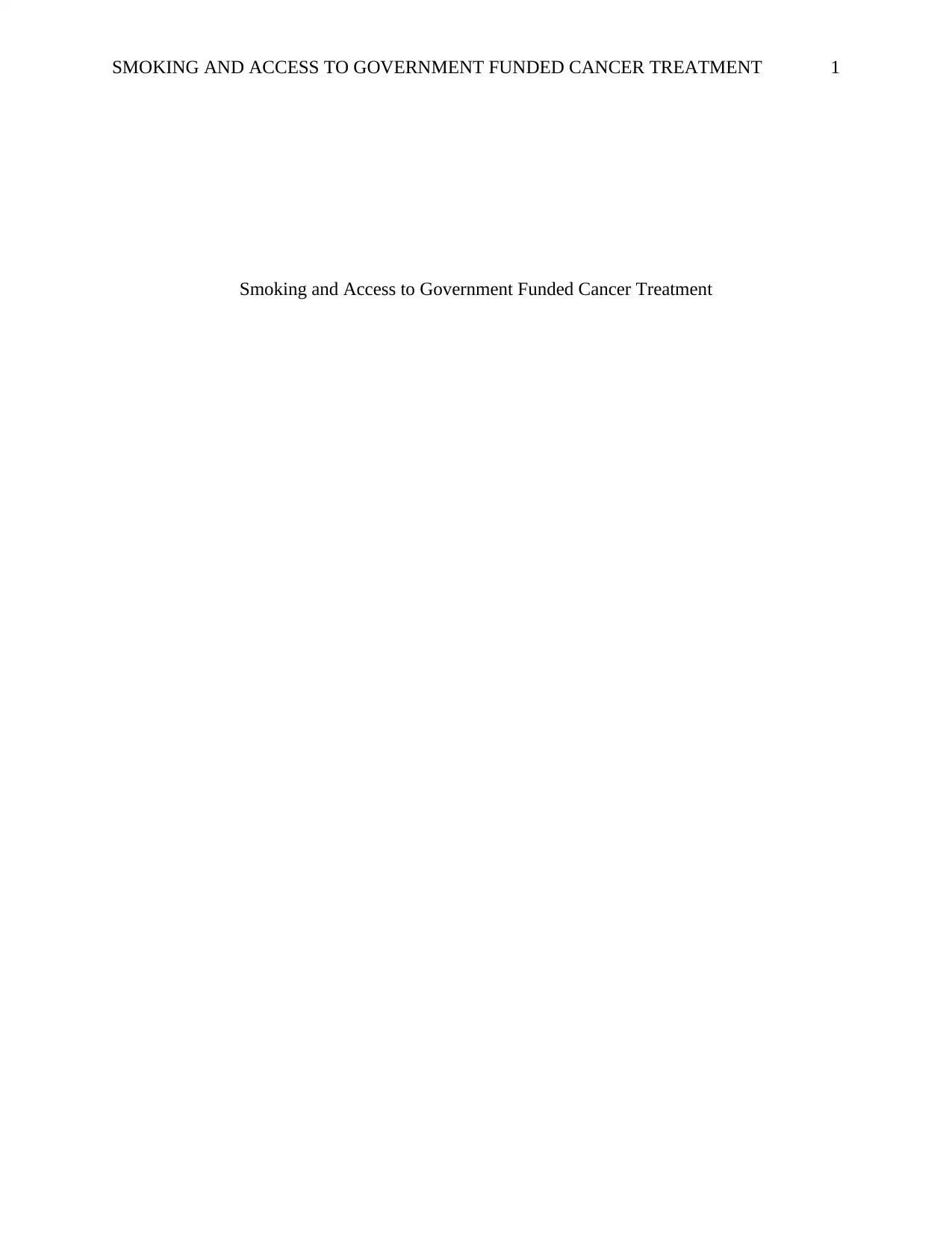
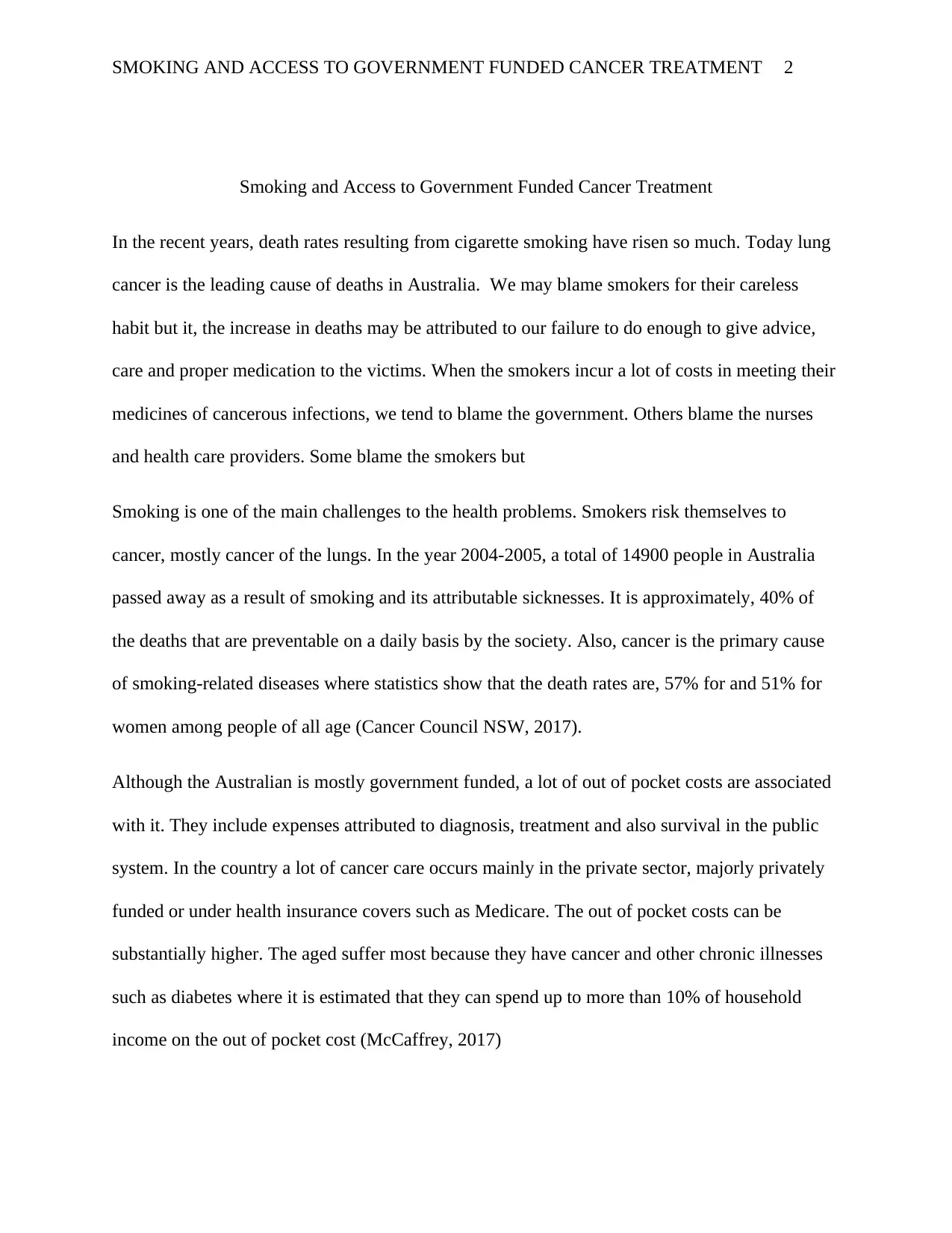
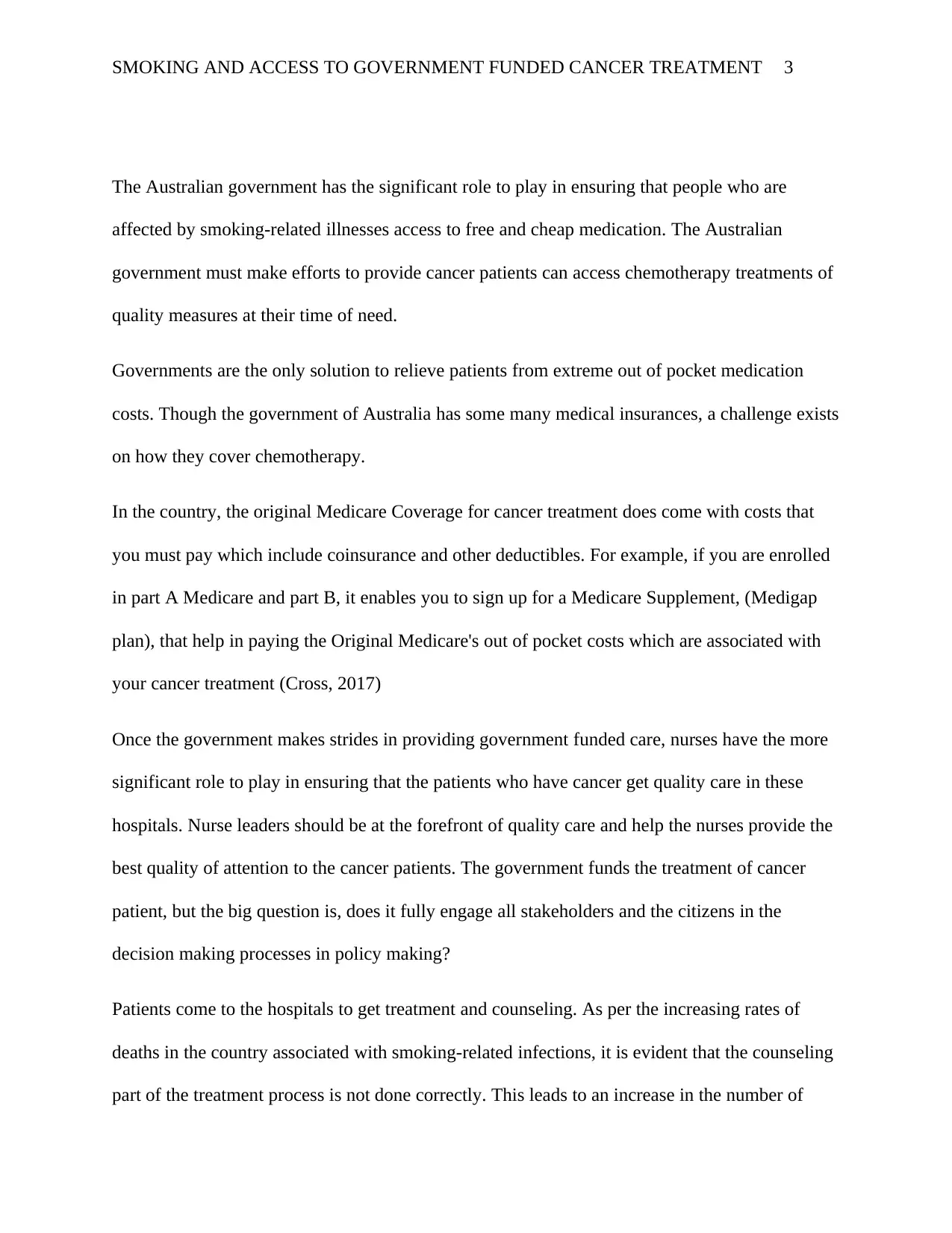

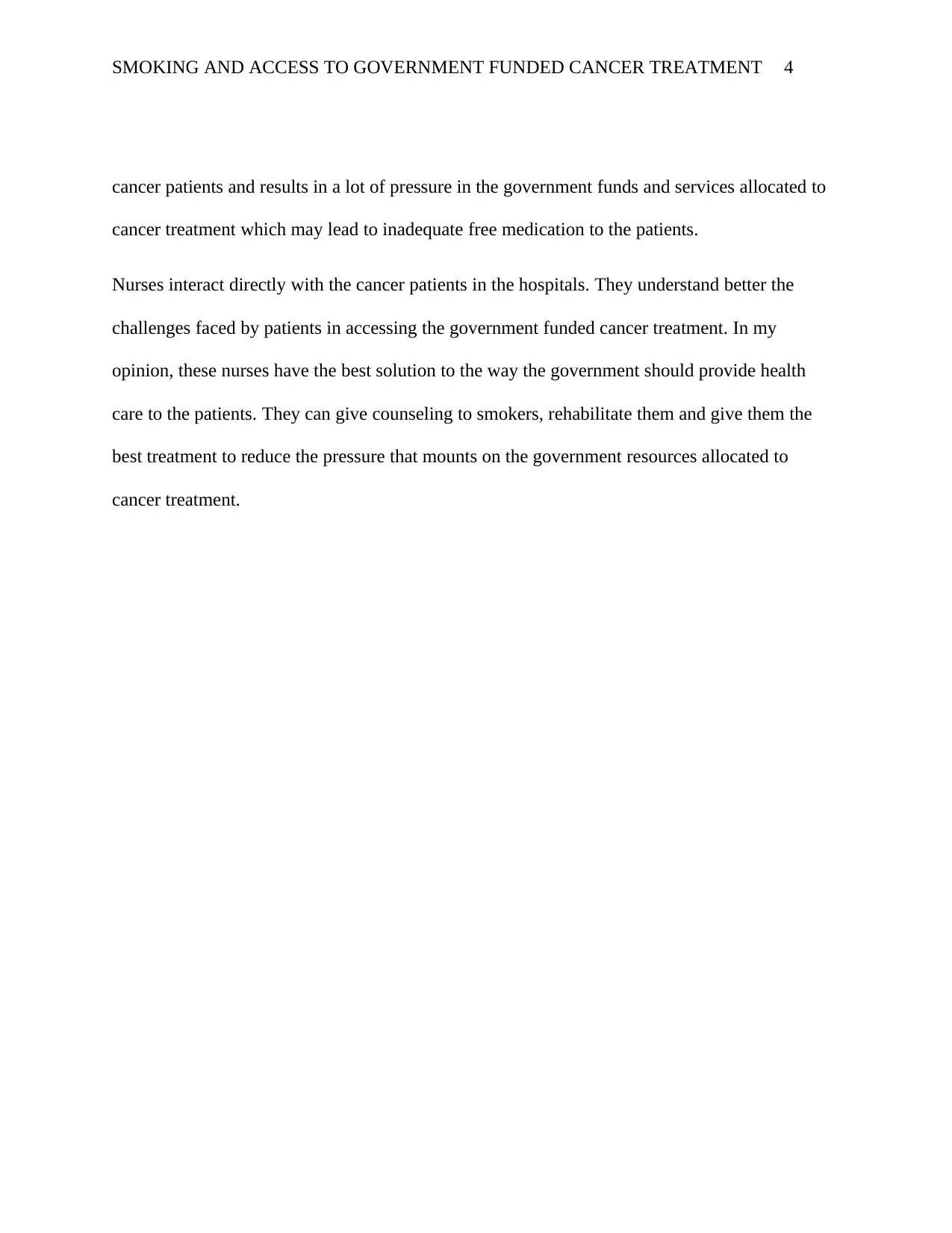
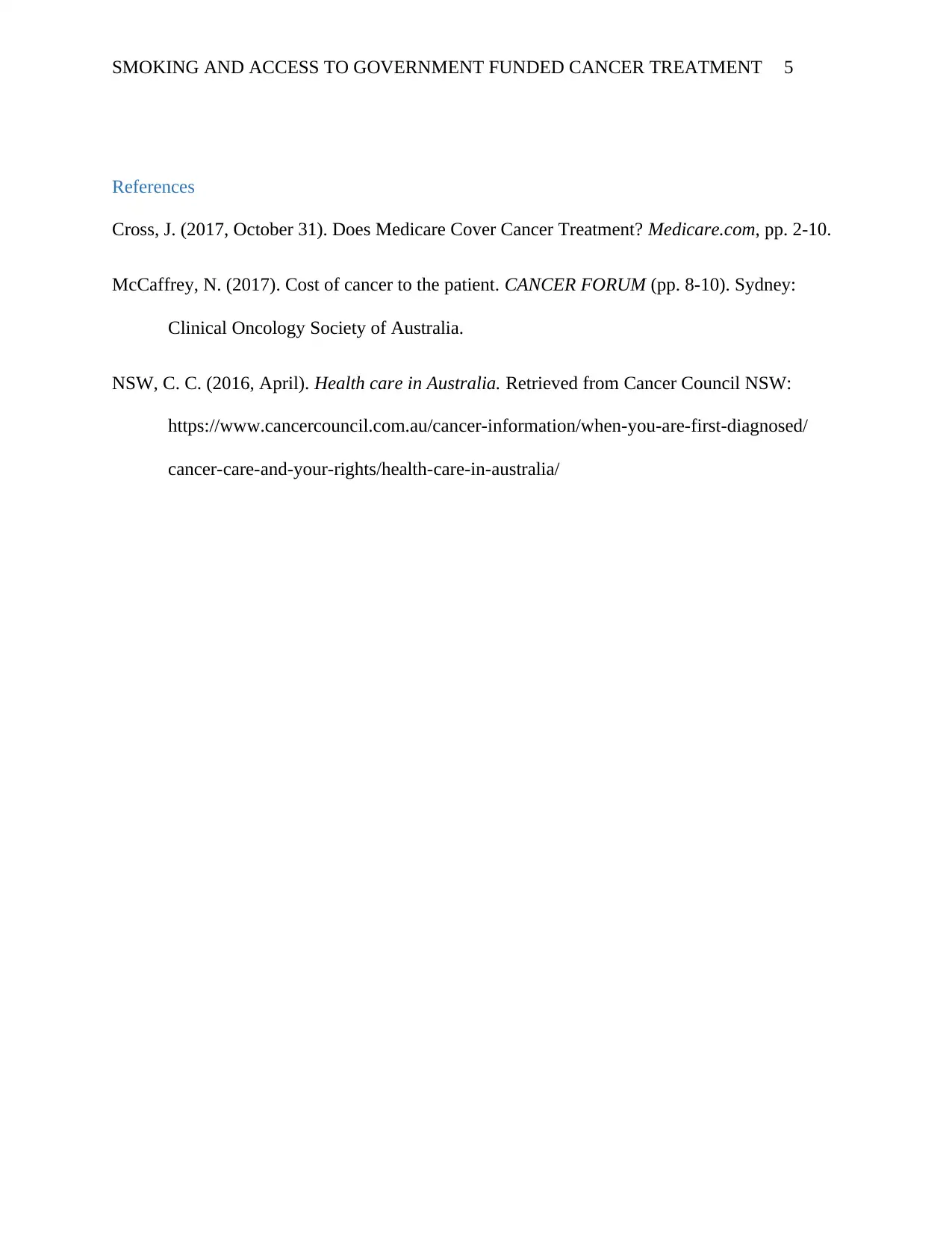






![[object Object]](/_next/static/media/star-bottom.7253800d.svg)